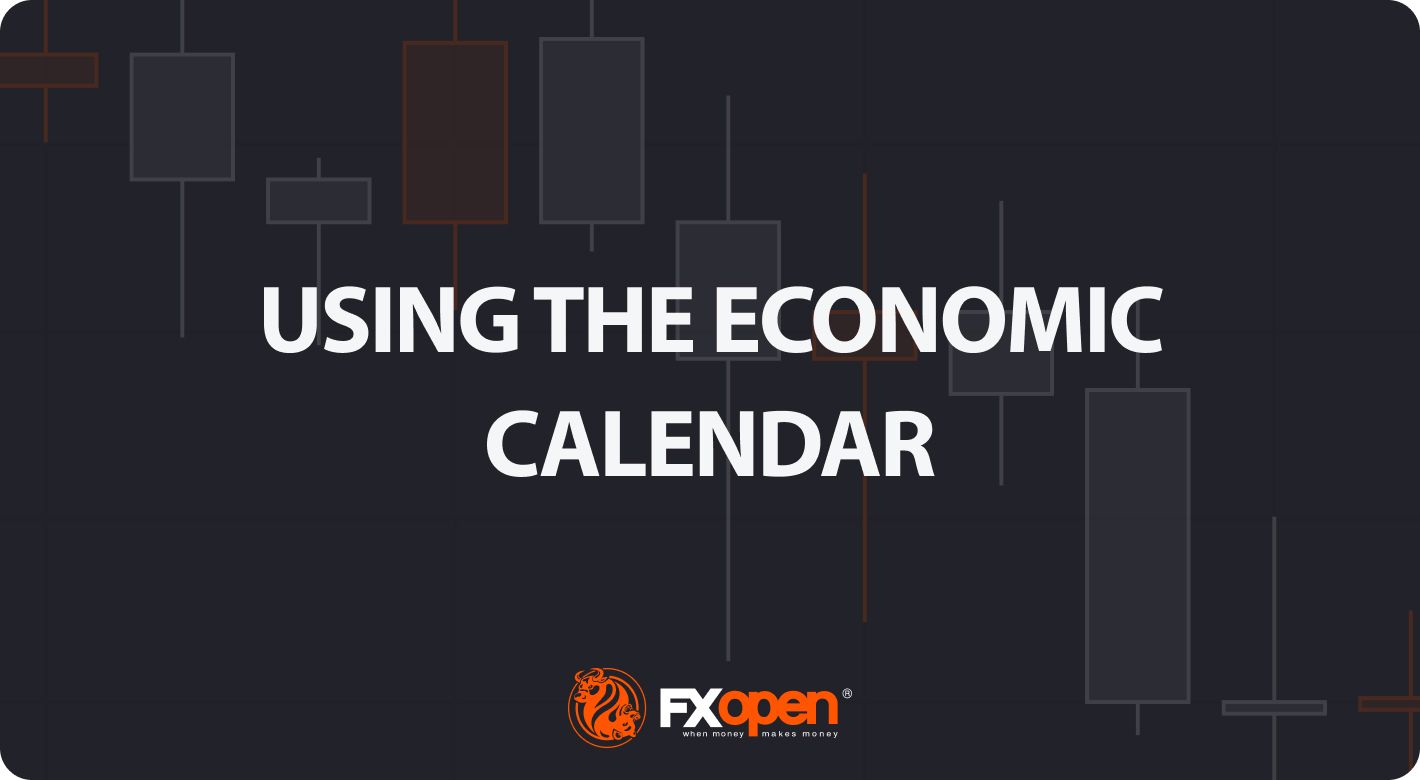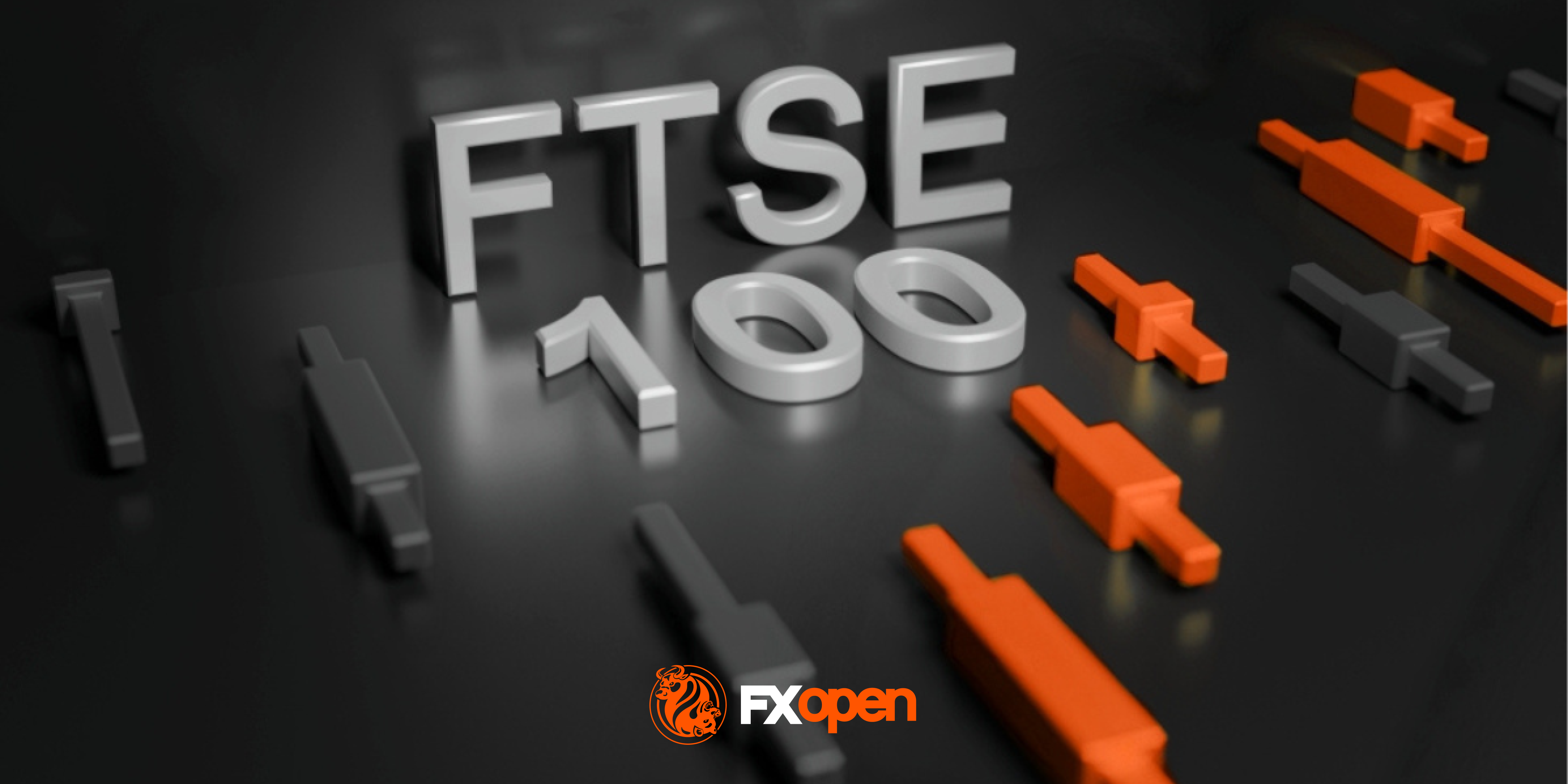FXOpen

The dynamic world of forex trading requires staying ahead of market movements. Traders rely on various tools and strategies to make informed decisions, and one tool that holds immense importance is the economic calendar. In this article, we will discuss the specifics of utilising the economic calendar for market analysis.
Key Economic Indicators
Using the economic calendar and understanding the major indicators provides traders with a comprehensive overview of an economy's health.
- Gross Domestic Product (GDP): GDP stands as a primary indicator of economic health, representing the total value of goods and services produced. A growing GDP signifies a robust economy, while a shrinking one may indicate contraction.
- Labour Data: Employment numbers, including unemployment rates and job creation, provide insights into the labour market's strength, acting as a barometer for economic vitality.
- Inflation (CPI/PPI): Inflation, measured through the Consumer Price Index (CPI) and Producer Price Index (PPI), reflects the general increase in prices. Central banks closely monitor inflation rates to adjust monetary policies.
- Central Bank Interest Rates: Central banks utilise interest rates to control inflation and stimulate or cool down economic activity. Changes in these rates can have a profound impact on currency values.
- Manufacturing and Services PMIs: The Purchasing Managers' Index (PMI) for the manufacturing and services sectors gauges business conditions. Values above 50 indicate expansion, while those below 50 signals signify contraction.
- Retail Sales: Consumer spending patterns are reflected in retail sales data, offering valuable insights into economic growth or contraction.
Understanding Event Impact in Live Economic Calendars
In forex trading, comprehending the potential impact of scheduled events is paramount to making informed decisions. Events listed on the economic calendar are categorised to signify their potential influence on the market. The significance lies in distinguishing between high-impact, medium-impact, and low-impact events, as these categorisations serve as a guide for traders in managing risk and refining their strategies. The economic calendar becomes an invaluable asset in this process, providing real-time updates and ensuring that traders stay abreast of the latest developments, enabling them to react promptly to market shifts based on the event's anticipated impact.
How Are Event Details and Expectations in an Economic Calendar Explained?
Economic calendar entries unveil a wealth of information crucial for traders seeking a nuanced understanding of market dynamics. These entries outline essential details such as the release date and time, offering traders precise timelines to consider when designing their trading strategies. Furthermore, economic calendars furnish historical context by presenting previous data, allowing traders to discern trends and patterns. Crucially, consensus forecasts act as a compass, providing an anticipated benchmark against which the actual results are measured.
The significance of market expectations cannot be overstated; they serve as a gauge of investor and market sentiment. Deviations from these expectations can trigger substantial price fluctuations, presenting both opportunities and risks for traders. Navigating the nuanced landscape of economic calendar details requires a keen awareness of these factors.
Using Economic Calendar for Forex Trading Strategies
Effectively leveraging the economic calendar in forex trading opens a realm of strategic possibilities. Traders can employ diverse approaches to capitalise on market movements driven by scheduled events.
Trading the News
One prominent strategy involves reacting swiftly to breaking news and economic releases. For instance, when a central bank announces an unexpected interest rate hike, traders might witness an immediate surge in the currency's value. Conversely, negative economic data releases can prompt a rapid decline. By monitoring the economic calendar, traders position themselves to capitalise on these instantaneous market reactions.
Swing Trading Based on Economic Releases
Longer-term traders can harness the economic calendar to identify trends and execute swing trading strategies. Some economic events may have a long-term impact on the domestic currency. For instance, if a country reports positive GDP growth, a trader might adopt a bullish stance on its currency, anticipating a sustained upward trend. Conversely, adverse economic indicators could prompt a bearish outlook, guiding traders in making informed decisions for more extended trading periods.
Long-Term Market Trends
In the dynamic landscape of financial markets, forex signals from the economic calendar wield considerable influence not only on short-term movements but also on long-term market trends and overall sentiment. However, traders seeking a comprehensive market analysis often combine fundamental and technical analysis. While technical analysis scrutinises historical price data and chart patterns, fundamental analysis delves into the underlying economic factors driving market movements. By combining these approaches, traders gain a deeper understanding of the market, allowing them to identify potential long-term trends and make informed decisions.
Examples of Market Reactions
It is worthwhile for traders to look at an FX economic calendar daily.
The Swiss National Bank (SNB) did not align with market expectations about a rate hike on September 21, 2023 as inflation cooled down. The deviation of the announced rate from the expected one caused an abrupt fall in the Swiss franc.
On June 8, 2023, Japan’s GDP for the first quarter was released and appeared to be higher than expected, which initiated high volatility and a short-term rally for the Japanese yen.
Interested in trading opportunities for the best economic calendar events? You can try FXOpen's free trading platform TickTrader.
Final Thoughts
While economic events can offer opportunities, it is imperative to recognise and navigate the inherent risks. Trading around economic events exposes investors to heightened market volatility, where prices can experience rapid and unpredictable fluctuations. Moreover, the potential for slippage, the difference between expected and executed prices, poses an additional challenge for traders to overcome. Therefore, before you trade on economic calendar events, you need to develop a reliable and effective trading strategy. If you are ready to trade upcoming data releases, you can open an FXOpen account and try out your trading strategies.
This article represents the opinion of the Companies operating under the FXOpen brand only. It is not to be construed as an offer, solicitation, or recommendation with respect to products and services provided by the Companies operating under the FXOpen brand, nor is it to be considered financial advice.
Stay ahead of the market!
Subscribe now to our mailing list and receive the latest market news and insights delivered directly to your inbox.








